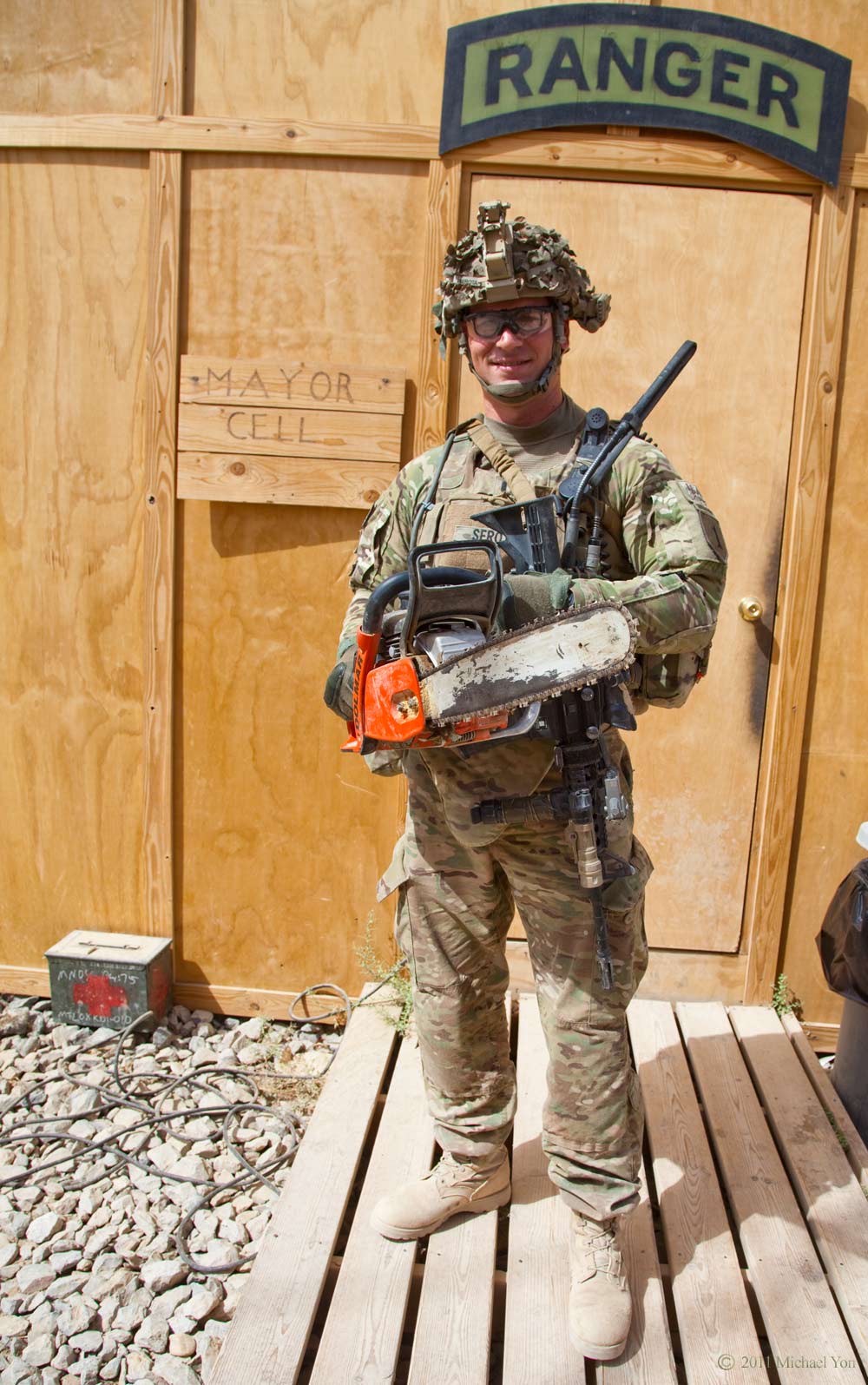Part of building new roads and outposts includes cutting down trees. Explosives are the chainsaw of war, and so naturally the troops have been cutting down trees with plastic explosives and detonation cord which thunder daily here. One might think that the fastest way to cut down a bunch of trees is to blow them up, but that’s not always true. Often the chainsaw is the tool of choice. The chainsaw method can be lighter and faster than using explosives. Importantly, when using explosives the civilians must be cleared out, but this is not so with a chainsaw. Importantly, too, before explosives can be used the troops must clear what they call a “BiP RAS.” (Blow in Place Restricted Air Space.) Our helicopters often fly so low that they can accidentally be blown out of the sky, or at least fragged, and obviously that is to be avoided. But the BiP RAS and other formalities also can take time, meaning our troops must stay in danger longer. On the other hand, our helicopter pilots don’t have to be warned about chainsaws.
Captain Doug Serota has been using chainsaws since he was a boy growing up in Alabama. When Captain Serota got his hands on a chainsaw, he stopped wasting time with explosives when possible. This reduces risks to his men, and frees time for other work. But like most everything, the chainsaw versus explosives question remains open. For instance, one of my tent mates, Sergeant Edward Wooden, has had to cross water here at night with explosives to blow down a tree. He stripped off his body armor, got across the water, quietly placed the explosives and slipped away. BOOM. Tree gone. The tree was large and would have required some time and much noise with a chainsaw, not to mention lights. In this neck of the woods a chainsaw is pretty much good for one thing: trees. Explosives, however, can be used for all sorts of tasks. In any case, the chainsaw in Captain Serota’s hands and the explosives in Sergeant Wooden’s hands have been knocking down a lot of trees. The Taliban are not happy to see their hiding places disappear.





No comment yet, add your voice below!